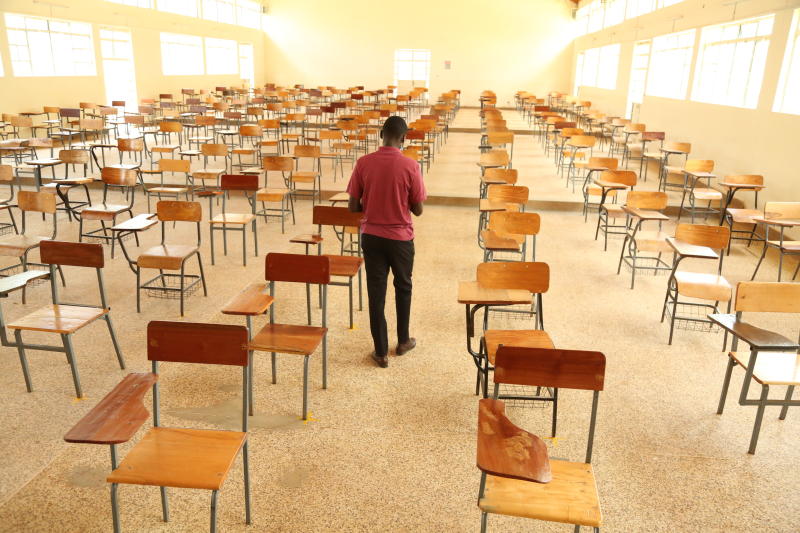×
The Standard e-Paper
Stay Informed, Even Offline

A student walks inside a lecture hall at Maseno University after the institutions of higher learning reopened countrywide on October 5 last year following a lengthy closure due to the Covid-19 pandemic. [Collins Oduor, Standard]
A second attempt to stop universities from offering bridging, diploma and certificate courses has failed after the High Court dismissed a case that would have locked out learners from transitioning within the institutions.